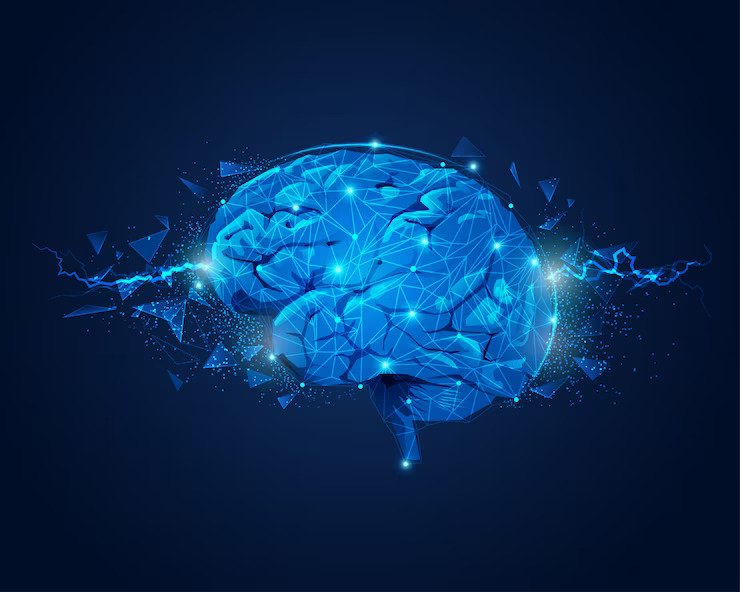Neurotherapy Research And Innovation: Advancing The Field For Better Outcomes
Neurotherapy, also known as neurofeedback or EEG biofeedback, is a non-invasive therapeutic approach that aims to regulate brain activity and improve cognitive function, emotional well-being, and overall mental health. Over the years, neurotherapy has garnered increasing attention from researchers and clinicians alike, leading to significant advancements in the field. From innovative technologies to cutting-edge research studies, Neurotherapy research, and innovation are paving the way for better outcomes and enhanced quality of life for individuals with a wide range of neurological and psychological conditions. In this article, we delve into the latest developments in Neurotherapy research and innovation, exploring their potential to transform the landscape of brain-based healing.
Understanding Neurotherapy
Neurotherapy is based on the principle of neuroplasticity, which posits that the brain can reorganize and adapt its structure and function in response to experiences and stimuli. By providing real-time feedback on brainwave activity, typically through electroencephalography (EEG) recordings, Neurotherapy allows individuals to learn to self-regulate their brain function. Through repetitive training sessions, individuals can modify their brainwave patterns, leading to improvements in attention, focus, mood regulation, and cognitive performance.
Advancements in Neuroimaging Technologies
Recent advancements in neuroimaging technologies, such as functional magnetic resonance imaging (fMRI), magnetoencephalography (MEG), and positron emission tomography (PET), have expanded our understanding of brain function and connectivity. These technologies provide researchers with unprecedented insights into the neural mechanisms underlying various neurological and psychiatric disorders, shedding light on potential targets for Neurotherapy interventions. By integrating neuroimaging data with neurofeedback techniques, researchers can develop more targeted and personalized treatment protocols, tailored to the specific brain dysfunctions observed in individual patients.
Innovative Neurofeedback Protocols
In addition to traditional neurofeedback protocols targeting broad brainwave frequency bands, such as alpha, beta, theta, and delta, researchers are exploring novel neurofeedback approaches that target specific brain regions or networks implicated in different psychiatric and neurological conditions. For example, protocols targeting the default mode network (DMN), which is associated with self-referential thinking and mind wandering, have shown promise for reducing symptoms of depression and anxiety. Similarly, protocols targeting the frontal-parietal network (FPN), involved in executive function and attentional control, have been effective in improving cognitive performance in individuals with attention deficit hyperactivity disorder (ADHD) and traumatic brain injury (TBI).
Integration of Virtual Reality and Gaming Technologies
Another exciting development in Neurotherapy research is the integration of virtual reality (VR) and gaming technologies into neurofeedback interventions. By creating immersive and engaging environments, VR-based neurofeedback systems enhance motivation and adherence to treatment protocols, particularly in children and adolescents. Virtual reality environments can simulate real-life scenarios and challenges, allowing individuals to practice and generalize skills learned during neurofeedback training sessions to everyday life situations. Additionally, gamified neurofeedback programs provide immediate feedback and rewards, reinforcing desired brainwave patterns and promoting learning and skill acquisition.
Neurofeedback for Neurological Rehabilitation
Neurofeedback is increasingly being recognized as a valuable tool for neurological rehabilitation, complementing traditional rehabilitation approaches such as physical therapy and occupational therapy. Research studies have demonstrated the efficacy of neurofeedback in improving motor function, balance, and coordination in individuals with stroke, traumatic brain injury (TBI), and movement disorders such as Parkinson’s disease. Neurofeedback promotes neural reorganization and neuroplasticity in damaged brain areas, facilitating recovery and functional recovery.
Neurofeedback for Mental Health and Well-being
In the realm of mental health and well-being, neurofeedback has shown promise for treating a variety of psychiatric conditions, including depression, anxiety, post-traumatic stress disorder (PTSD), and obsessive-compulsive disorder (OCD). By targeting dysregulated brain circuits implicated in these disorders, neurofeedback helps individuals gain better control over their emotions and thoughts, reducing symptoms and improving overall quality of life. Moreover, neurofeedback interventions can be customized to target specific symptoms and cognitive processes, offering personalized treatment options for individuals with diverse clinical presentations.
Challenges and Future Directions
Despite the promising advancements in Neurotherapy research and innovation, several challenges remain to be addressed. Standardization of neurofeedback protocols, optimization of treatment parameters, and identification of biomarkers predictive of treatment response are areas of ongoing research. Additionally, larger-scale clinical trials are needed to establish the efficacy and long-term effects of neurofeedback interventions across different populations and clinical settings. With continued investment in research and collaboration between scientists, clinicians, and technology developers, the field of Neurotherapy holds great potential for revolutionizing brain-based healing and improving outcomes for individuals with neurological and psychiatric conditions.
Conclusion
In conclusion, Neurotherapy research and innovation are driving significant advancements in the field, offering new hope for individuals with neurological and psychiatric disorders. From innovative neuroimaging technologies to personalized neurofeedback protocols and immersive virtual reality environments, the landscape of Neurotherapy is evolving rapidly, fueled by cutting-edge research and technological innovation. By harnessing the power of the brain’s innate plasticity and developing targeted interventions based on scientific evidence, neurotherapy has the potential to transform the lives of millions of people worldwide, offering a path to better brain health and well-being.








